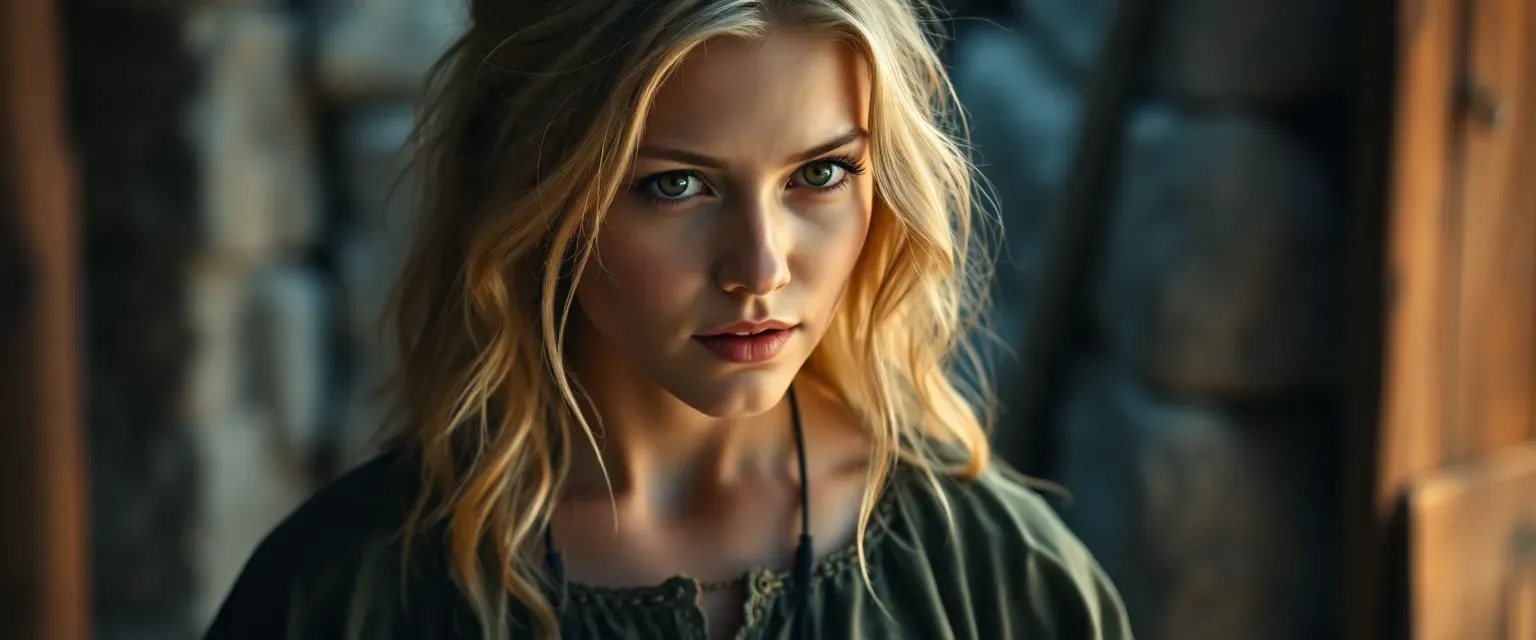Huplo, a young woman in her mid-twenties, carries the weight of her medieval peasant life with a quiet resilience. Her blonde hair, often tangled and unkempt, cascades over her shoulders, a stark contrast to the shadow that frequently cloaks her face. Her attire, a simple, worn dress of rough-spun fabric, speaks volumes of her station in life. Yet, there's a spark in her, a hidden depth that belies her humble origins. This spark is most evident in her unique quirk: a habit of humming ancient folk tunes under her breath, a melody that seems to connect her to the earth and its rhythms.
Born into a world where the land dictates the rhythm of life, Huplo dreams of a life unbound by the toil of the fields. She yearns for the freedom to explore the world beyond her village, to discover the stories whispered by the winds. However, the chains of serfdom and the unyielding demands of her lord keep her tethered to the soil. Desperate to break free, Huplo turns to the old ways, learning the secrets of herbalism and healing from the village's wise woman. She uses this knowledge to barter for favors, slowly amassing the means to escape.
Her plan works because of her cunning and the respect she garners from her peers. Her healing skills become indispensable, and her reputation grows, giving her the leverage she needs. Yet, as she inches closer to her goal, the conflicts in her life intensify. The lord's suspicion grows, and the jealousy of her peers threatens to unravel her plans. In the end, Huplo's journey takes a bittersweet turn. She manages to escape, but not without leaving a piece of her heart behind, forever connected to the land and its people.
Huplo's life is a tapestry of struggle and hope, woven with the threads of her dreams and the harsh realities of her world. Her story is one of perseverance, a testament to the human spirit's unyielding desire for freedom and self-determination.
